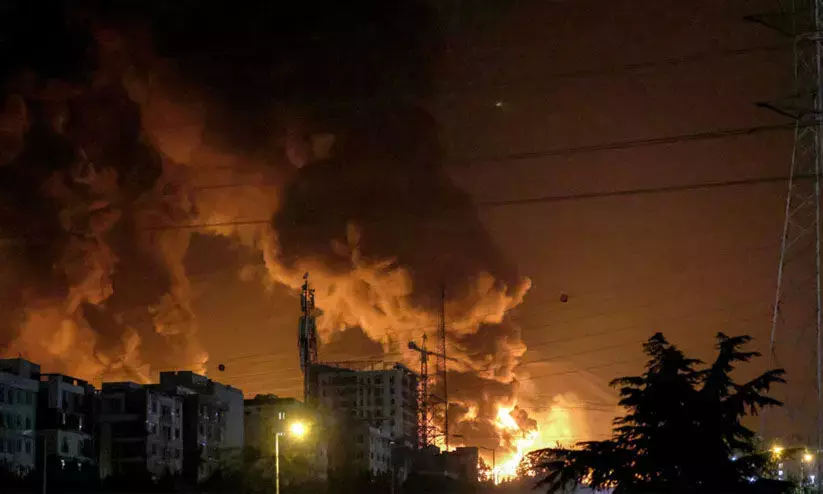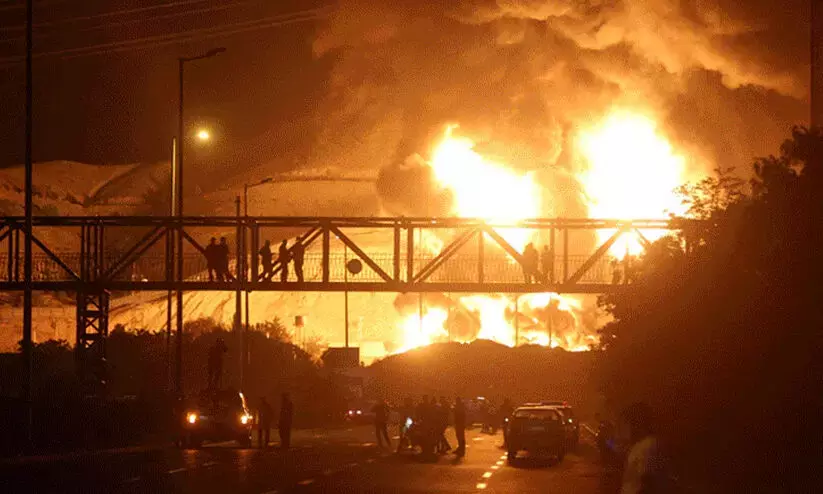
Oil prices surge amid rising Middle East conflict
text_fieldsNew Delhi: Global oil prices rose sharply on Monday following renewed tensions in the Middle East between Israel and Iran. Brent crude spiked as much as 5.5% before settling near $75 per barrel.
The surge followed reports that Israel had targeted Iran’s South Pars gas field, disrupting operations at a major production platform.
Despite the price jump, analysts remain cautious, suggesting that oil is unlikely to climb significantly higher unless critical chokepoints like the Strait of Hormuz are threatened or Iran-backed Houthis in Yemen intensify attacks on shipping routes.
Norbert Rucker, Head of Economics and Next Generation Research at Julius Baer, remarked that oil markets often serve as a “fever measure” in times of geopolitical conflict, with prices reflecting the heat of tensions.
“The situation remains in flux, and the coming days and weeks will show how far the escalation goes. Our best guess is that this latest conflict eruption follows the usual pattern, with prices rising temporarily before returning to previous levels. The oil market is very resilient today, and supplies are unlikely at risk,” he mentioned..
“Our best guess is that oil prices will follow the usual pattern around such geopolitical events, with prices rising temporarily before returning towards previous levels. The peak and duration of this pattern depend on the intensity of the conflict but historically averaged below 20 per cent in price gains and a length of up to three months,” according to Rucker.
The Israeli strike comes amid strained negotiations over a nuclear deal between the US and Iran. In response to the rising tensions, Tehran has warned that any attack would prompt retaliation against US bases in Iraq and neighbouring countries. As a precaution, the US has begun withdrawing some of its personnel from the region.
According to Emkay Global, Iran produces approximately 3.3 million barrels of crude oil per day—about 3% of global output—and exports around 1.5 million barrels daily, primarily to China (80%) and Turkey.
Iran also occupies a strategic position along the northern edge of the Strait of Hormuz—a key maritime chokepoint through which over 20 million barrels of oil pass daily, including shipments from Saudi Arabia, the UAE, and others. Tehran has previously threatened to block this critical route.
Analysts warn that any broader conflict in the Middle East affecting oil supplies from Iran, Saudi Arabia, Iraq, Kuwait, or the UAE could trigger a sharp surge in global oil prices.
(inputs from IANS)





















